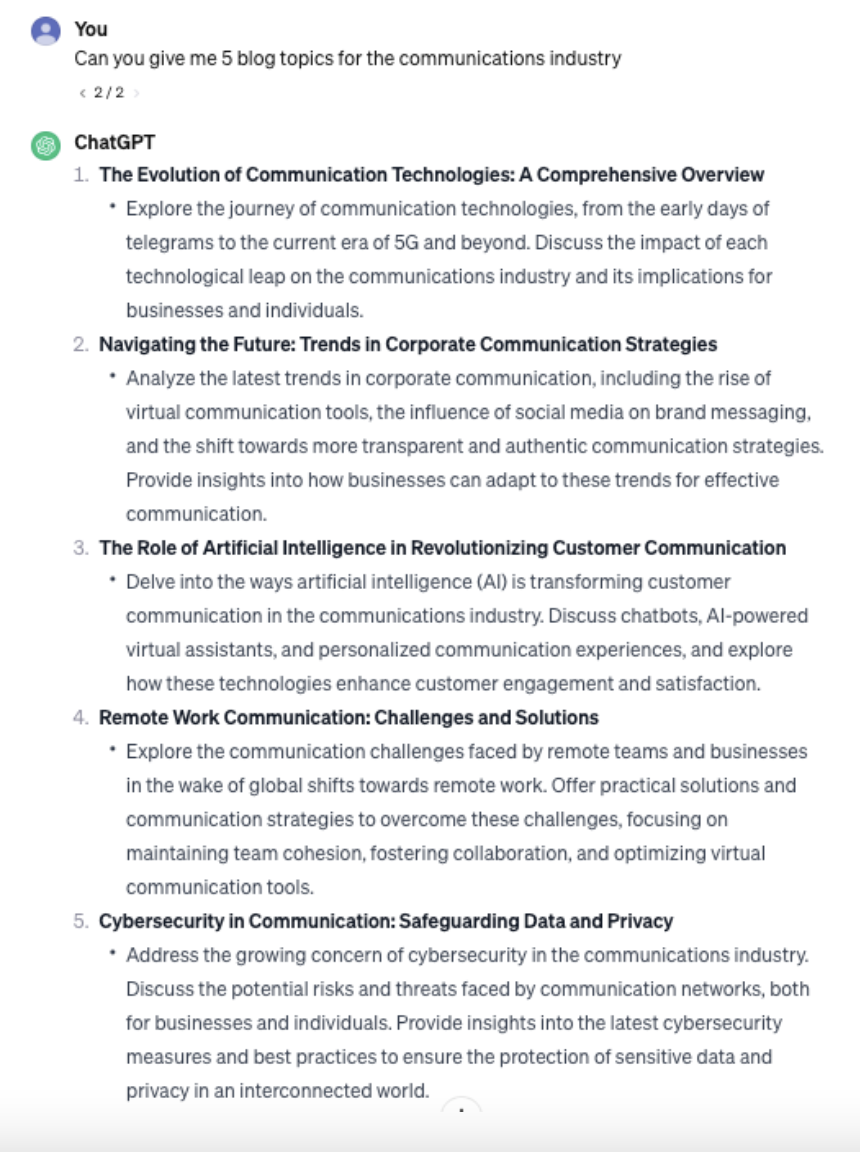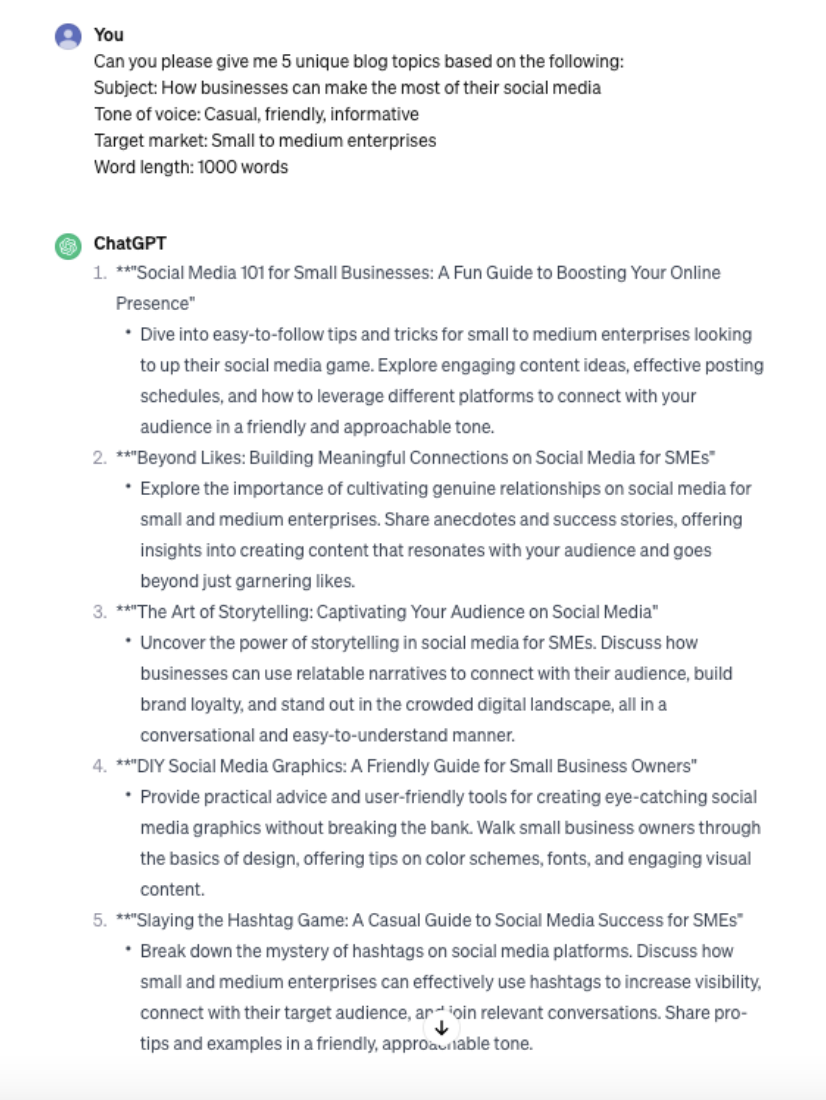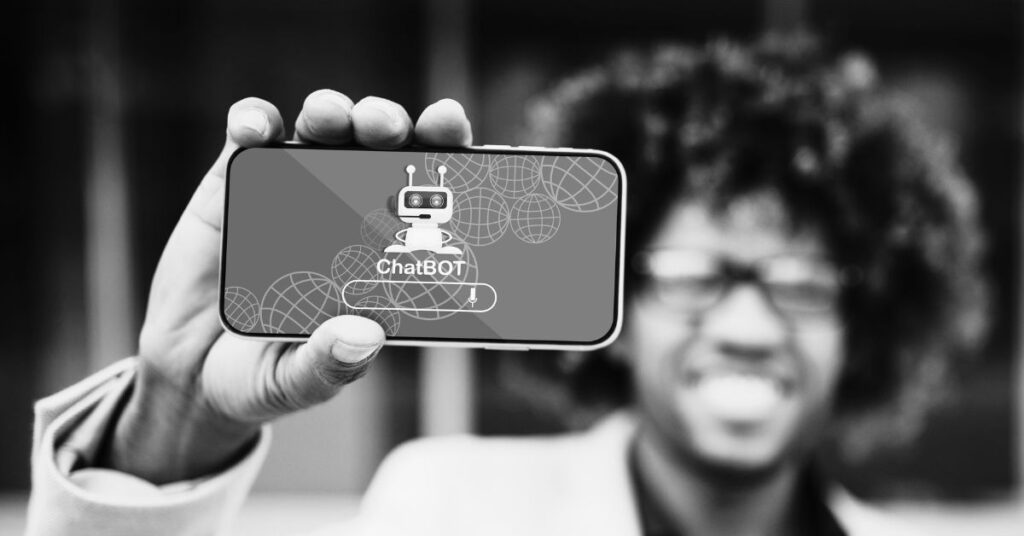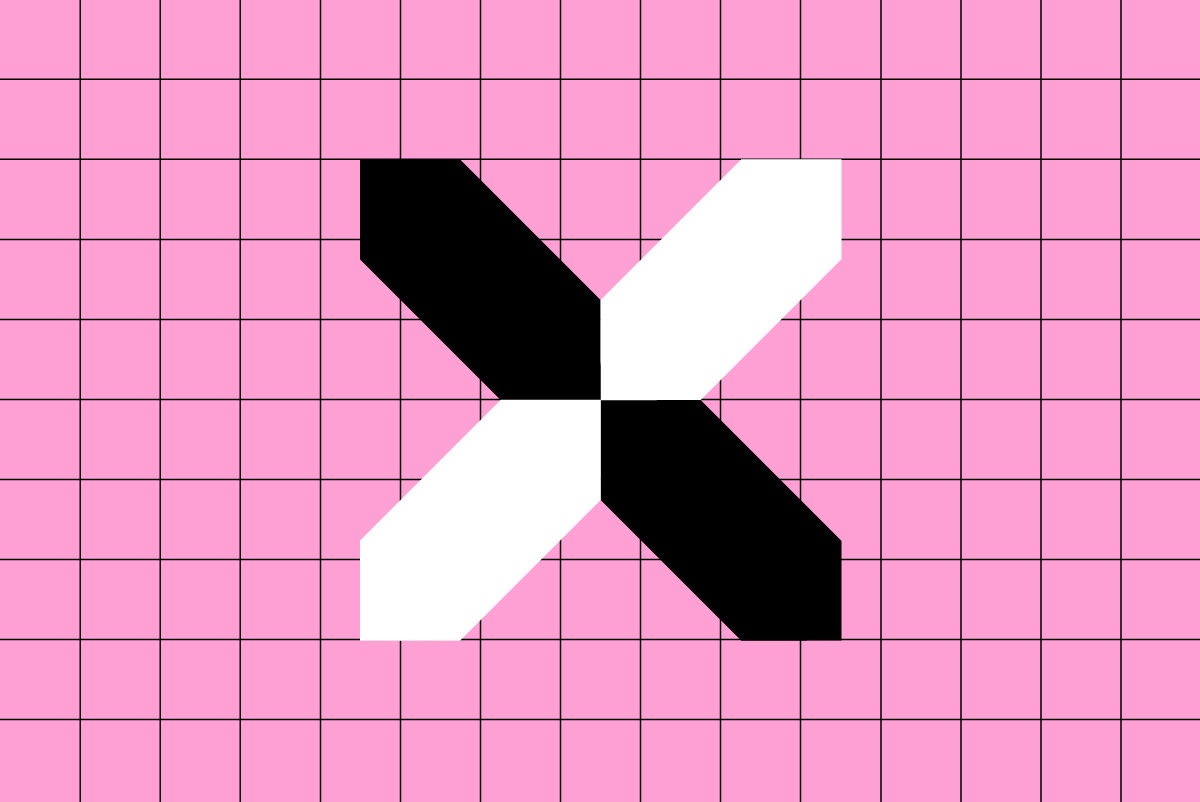It’ll come as a surprise to basically no one that ChatGPT was one of the top-searched trends in 2023. Looking back, it’s strange to think about – one minute it wasn’t there, and then BOOM – it just appeared. We began to rely on ChatGPT and other AI sites – almost like Google – to answer all of our questions (which is risky considering the accuracy rate). From recipes for the best banana bread to ideas for our next holiday, we began to push the boundaries of the platform.
Just like in our personal lives, AI began to infiltrate the workplace. Especially in creative industries, it was almost creepy some of the content (written and visual) AI was churning out.
Now that we’ve experienced significant growth in AI and sites like ChatGPT, it’s the perfect time to dissect whether AI is coming for your job (hint: it is, but not in the way you might think).
What is AI?
Britannica defines Artificial Intelligence (or AI for short) as “the ability of a computer or computer-controlled robot to perform tasks that are commonly associated with the intellectual processes characteristic of humans, such as the ability to reason.”
However, AI does differ from machine learning, despite being closely related. While AI allows computers to learn and solve problems (almost like a human), machine learning refers to the method used to train a computer to learn from its inputs but without explicit programming for every circumstance. Put simply – machine learning helps a computer to achieve artificial intelligence.
If it’s not connected to the internet, how does it know so much?
Much like Gretchen’s hair from Mean Girls, AI is full of secrets.
We know that AI platforms like ChatGPT aren’t connected to the internet (for example, you can’t type ‘What’s the weather in Melbourne tomorrow?’ and expect an answer). Rather, it knows what it knows from machine learning.
Confused? Same.
I work in a creative industry – will AI eventually make my job redundant?
Here we are – the question that has all of us creatives up at night (well, not really, but we’ve thrown it in for dramatic effect) – is AI coming to take over the world and/or my job?
While we can’t tell the future, it’s a possibility. It might not completely take over your job, but there is a chance it will change the way you work, as research shows that generative AI has the potential to automate 26% of work tasks in the arts, design, entertainment, media and sports sectors.
But although tools like ChatGPT can whip out a social caption in under a second, it’s never going to be 100% human.
Generative AI
We touched briefly on what AI is, but to confuse you just that little bit extra, there are different types of AI. In the creative industry, we’re mostly dealing with generative AI. Generative AI is a type of artificial intelligence technology that broadly describes machine learning systems capable of generating text, images, code or other types of content, often in response to a prompt entered by a user.
Let’s have a look:
Take this previous Oraco post:
We asked ChatGPT to come up with a caption, and this is what we got: 
It’s ok, but it’s missing a bit of depth. Of course, you can adjust how you brief in ChatGPT so it’s a more in-depth caption, but if I took the time to do that, I may as well have written the caption myself!
How can I use AI in my workplace?
Although it may be gunning for your job, AI can be an extremely useful tool in helping you expand your creative thinking. While it doesn’t have to take over your job, you can ask it to offer up some prompts.
Not sure how it can help? Some things you can ask AI for can include:
- What are some blog topics I can write on for [your industry]?
- Generate ideas for an upcoming product launch that includes the themes of [your themes].
- Ideate 10 social media posts about [your topic].
- What are some new lead generation strategies for [your audience] in [your area].
- Produce ideas for podcast episodes in the {your] industry.
- Come up with ideas for cross-promotion with other brands in the [market], specifically with businesses such as [brand names]
Writing effective AI prompts
As you can see above, getting the most out of AI comes down to the prompt you enter. The more specific you can be with your prompt, the better the content it’ll churn out for you.
For example, if you’re a branding and communications (hey, like us!) and you want to conceptualise some ideas for some blog topics, you’re going to get much better results by being more specific.

Now, let’s add some more detail and see what we get:

By adding even a little bit of extra detail including your target audience, tone of voice and topic, you’ll get a much more relevant response. While these ideas all need tweaking to fit your brand, it’s a great way to help if you need some ideas.
Are robots going to take over the world?
We’re not going to lie – probably. However, we doubt it can ever fully replace human creativity.
In our blog about scroll-stopping content, Creative Director Leanne discussed AI in the design space. Referring to this article, Leanne says, “Visual artists are visual thinkers, so AI cannot produce art as we do. It cannot think outside of the code, nor does it have a conscience. AI needs to be backed by our human creativity, emotion, and empathy through text prompts, and even then, is it adequately reflecting the artist’s vision or capturing the beauty and emotional resonance?”
Still unsure of how you can leverage AI to benefit your business? Get in touch with the team at Oraco today.

